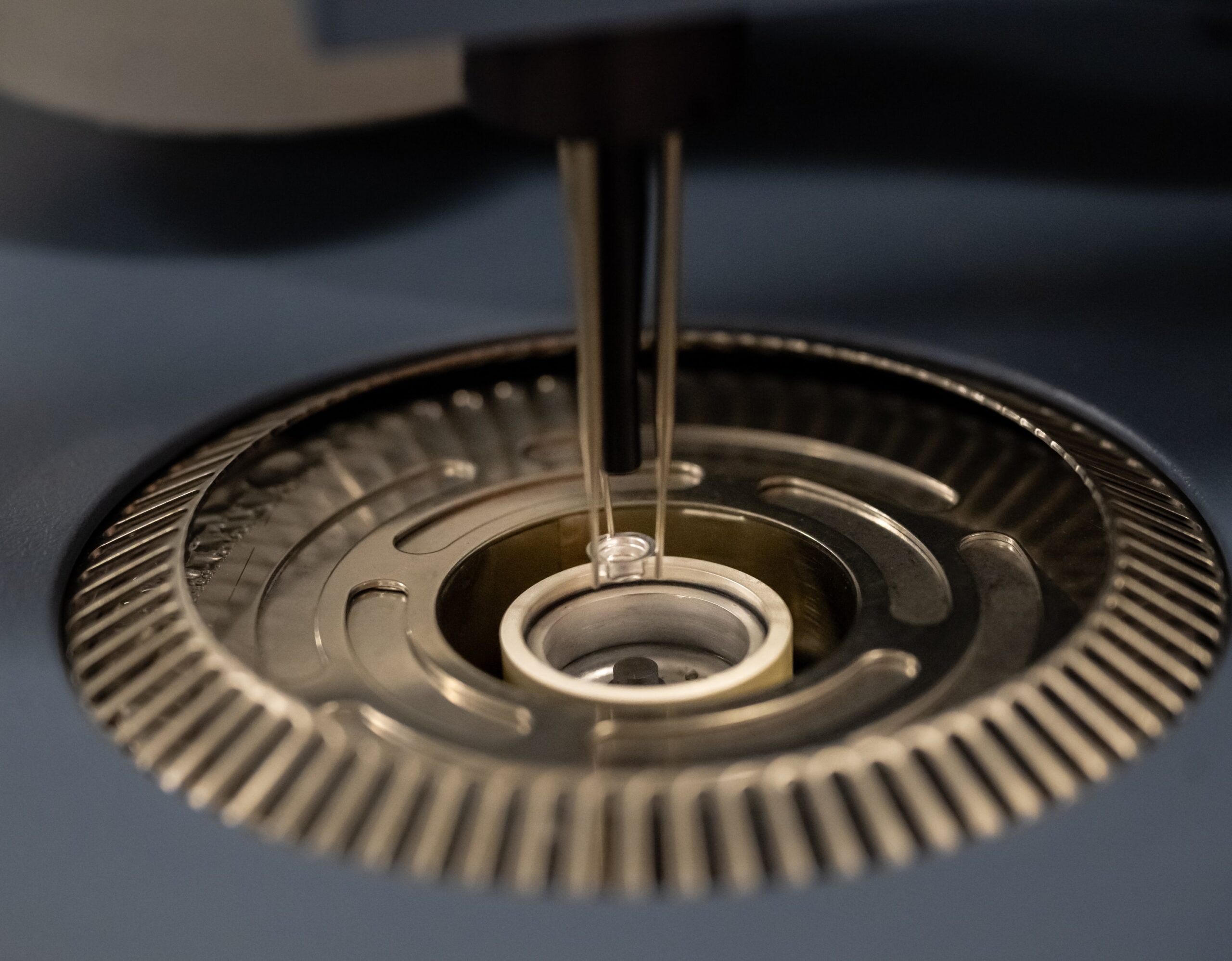
Thermal
Dynamic Mechanical Analysis is a thermal method used to provide plastic analysis or rubber analysis of virtually any sample.
Approaches
Our DMA instrument operates over a wide temperature range (-150 to 600°C) and provides multiple modes of deformation including tension, bending, single or dual cantilever, compression, and torsion.
It is best for the sample to maintain structural integrity during the entire DMA analysis. Knowing the melting temperature of the sample, in the case of thermoplastic materials, allows the upper temperature limit to be properly set.

Sample Considerations
Only solid samples can be evaluated using DMA Analysis. The sample has to have a stiffness value within a particular range to be suitable for testing.
DMA can be used to provide plastic analysis or rubber analysis of virtually any sample. Rubber or plastic samples can be prepared to have length, width, and thickness dimensions to accommodate the operating range of the instrument.
Contact an expert with your specific DMA Analysis needs and associated sample considerations.
Experience
Work we’ve done:
- Predicting acoustic absorption of cable insulation materials
- Comparative analysis of competing products
- Determination of curing behavior
Products we’ve tested:
- Vinyl fabrics
- Fiberglass products
- Reactive thermoset systems
- Silicone Rubber
- Vinyl Fabrics
- Polypropylene Films
